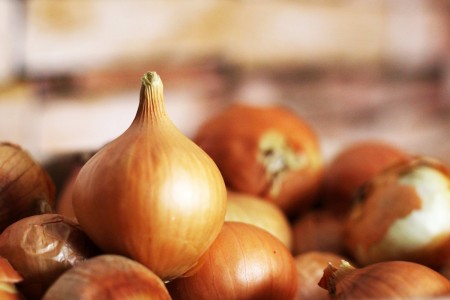
Advertisements
The gut microbiome has become a buzzy topic, and for good reason: The trillions of microbes in your gastrointestinal tract play a pivotal role in many body functions, including your immune system and mental health.
Video of the Day
The thing is, what you do — from your diet to other everyday habits — can inadvertently affect the makeup of these microorganisms and shift the balance from benevolent to bad bugs in your gut.
Here, Suzanne Devkota, PhD, an assistant professor in the Cedars-Sinai division of gastroenterology and a scientific advisory board member for the American Gastroenterological Association Center for Gut Microbiome Research & Education, points to four common things that can mess with your gut, and explains how to make your friendly flora flourish.
Mistake 1: Not Eating Enough Fiber
Most Americans don't eat enough fiber. As a matter of fact, only a measly 5 percent get the recommended daily amount (which is between 25 and 38 grams for adults), according to a July 2016 article in the American Journal of Lifestyle Medicine.
"If you eat well below that, you could potentially be starving out beneficial bacteria in your gut," Devkota says. That's because these good bugs nosh on certain types of fermentable fibers, which, in turn, create healthy byproducts that your gut absorbs, she explains.
But there are also benefits to eating the fibers your gut bacteria can't "eat."
"These fibers are 'bulking agents' that promote motility, or normal bowel movements," Devkota says.
Here's why this matters: If there isn't much movement of material through the GI tract, all your fecal matter stays in contact with your gut cells and bacteria, which can lead to an overproduction of bacterial waste products and, ultimately, cause local inflammation in the gut, she explains.
"That's why eating a mix of fermentable and non-fermentable fibers is important for keeping things moving and keeping your bugs happy," Devkota says.
Advertisements
Types of fermentable fibers include:
- Oats
- Barley
- Citrus fruits (oranges, lemons, grapefruit)
- Legumes (beans, peas, lentils, peanuts)
And non- or low-fermentable foods include:
- Flaxseeds
- Vegetables with tough stems likebroccoli
- Chia seeds
- Strawberries
Keep in mind: Highly fermentable fibers can produce uncomfortable gas and bloating in some people, says Devkota, who adds that choosing low-FODMAP fibers, which provide the beneficial effects of fiber without the bloating, is a good option.
According to Johns Hopkins Medicine, high-fiber, low-FODMAP foods include:
- Grains such as oats, quinoa and rice
- Vegetables like cucumber, eggplant, potatoes, tomatoes and zucchini
- Fruits like blueberries, grapes, oranges, pineapple and strawberries
Mistake 2: Not Drinking Enough Water
When you don't hydrate with enough H2O, you might be inadvertently creating constipation, Devkota says. And remember, a lack of movement in the GI tract can generate an unideal environment for your gut bacteria.
"The longer your gut has contact with your poop, the higher the chance of inflammation," she says.
To avoid this, aim to drink at least 64 ounces of water (or eight glasses) per day. "If you have constipation due to irritable bowel syndrome, however, drinking more water than this hasn't been shown to improve constipation," Devkota notes.
Mistake 3: Being Stressed Out
Have you ever felt the urge to poop when you're stressed or butterflies in your stomach when anxious?
"Many people know anecdotally that when you're nervous, you might need to go to the bathroom," Devkota says. This simple example demonstrates how signals from the brain affect the gut.
What's more, stress can affect communication between the brain and the gut, prompt pain, bloating and other stomach discomfort and may even be linked to changes in gut bacteria, which can affect mood, according to the American Psychological Association.
All this is to say, learning to cope and manage your stress in healthy ways will also help to keep your gut bacteria in good shape. Getting adequate sleep, meditating and fitting in regular exercise are a few tried-and-true strategies to relieve stress.






